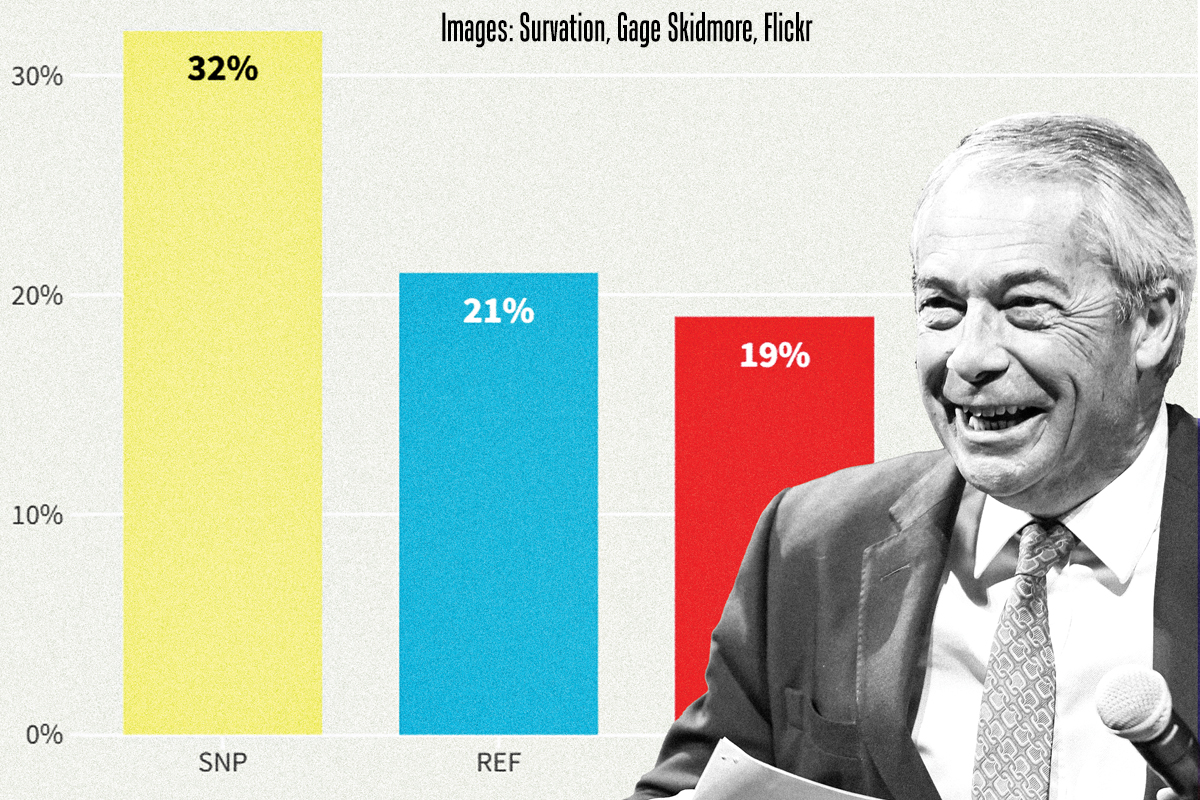The referendum is over and now is the time to consider the future of Scottish politics and how we as Marxists should intervene in the movement. Amy Dean of the Glasgow Marxists analyses the developments in Scotland over the past two years.
The referendum is over and now is the time to consider the future of Scottish politics and how we as Marxists should intervene in the movement. In doing so we must firstly analyse what has happened over the past two years.
With an 85% turnout there is no doubt that the referendum brought thousands into politics for the first time, and this represents a huge shift in the political landscape of Scotland. Not only was the turnout and engagement on a higher level but there was a real threat to the establishment. Their sigh of relief as the No result was announced was audible across the UK.
This threat undoubtedly played out due to class frustration. Thousands of working people were mobilised to vote Yes out of their anger at the economic crisis and austerity; they no longer wanted to pay for a crisis they did not create. It is also the case that many that voted No did so not out of reactionary reasons, but from understandable scepticism at independence and what it offered. It is safe to say that the majority of working class Scots and youth are looking for fundamental change.
Don’t mourn; organise!
So, having analysed that the 45% Yes vote represented the frustration and anger of the working class, should we be disheartened that Scotland is not to become an independent country? For certain, many on the left have made statements to this effect.
Some have spoken of their anger at the result and lamented the fearfulness of the Scottish people, which they see as having held them back from voting for independence. When asked how he planned to take part in the move towards greater devolution, Tommy Sheridan responded that that was for the No campaign to decide, reflecting the despondency of the Yes side.
For us there is no such despondency or disappointment. As previously stated, the referendum has mobilised thousands, and this is to be celebrated. Angry youth and working people were driven to support Yes out of their frustration with capitalism and the status quo and also the lack of other options.
Having gotten into bed with the Tories and Liberal Democrats for the Better Together campaign, and promising nothing but slower cuts if elected to Westminster, the Labour Party failed to offer any solution or hope to the people of Scotland. The nationalists on the other hand fought an Obama-esque campaign, based around the rhetoric of abstract “change” and placing themselves in opposition to the food banks of austerity Britain. It is no wonder that they won support of 37% of Labour voters and that Alex Salmond was seen to have thrashed Alistair Darling in the debates.
The SNP’s independence: a capitalist Scotland
However, unlike many on the left, we must remember that the SNP are a pro-capitalist, nationalist party that offers nothing to the working class of Scotland but a more localised capitalism. A brief examination of the SNP vision for independence makes this clear. Independence was tied to the Queen as head of state, the pound, NATO membership and a cut in corporation tax. It did not challenge the status quo of the British state or capitalism.
If you do not challenge capitalism then you cannot challenge austerity and the misery of life under capitalism for the masses of working people. This has been shown by social democratic parties in Greece and Spain carrying out cuts and inflicting misery on an even higher level than here in the UK.
Therefore we are not left in crisis and turmoil at the No result. Independence would have only led to disappointment as it would have been unable to deliver on its numerous promises.
The fresh layers of youth and the working class who were brought into politics through the referendum campaign did so through genuine class-conscious reasons: addressing social inequality; tackling disparities of economic and political power; giving the British ruling class and their political servants a good kicking; and so on.
The disgusting role of Labour in cosying up to the hated Tories and Lib Dems to tell working class Scots to vote for Queen and Country was quite rightly met with revulsion.
Reflecting the confused politics of the Yes campaign, this was simultaneously a mix of, at best, class conscious revulsion at the “Eton Toff” and the limp Labour leader defending an austerity union, and, at nationalist worst, flag-waving, talk of “Scotland the brave”, and aligning the Scottish working class with its business leaders as opposed to the “right-wing” English workers.
Which way forward?
So, how do we plan to go forward? Over the past week, the SNP and pro-Yes Greens have seen a swelling of membership as thousands have joined. Some on the left, such as supporters of the Radical Independence Campaign (RIC) – who during the referendum stood outside of (but effectively alongside) the Yes campaign – have called for the formation of a new broad-left party, similar to the now near-dissolved SSP.
A new party formed from the left of the independence campaign might attract a fresh layer of young people looking for socialist ideas, as the SSP did in its heyday. This remains to be seen.
Clearly, many young people have been repelled by the policies and actions of the Scottish Labour Party, especially for linking up with the Tories and Liberals in the Referendum campaign.
The Labour Party at present appears to be dead and as right-wing as ever with their association with 13 years of a right-wing government and the Iraq War, and also their support for deep cuts and austerity. They are regarded as one of the “Establishment” parties. Young people will be looking for change. As Marxists, we will seek a road to those layers open to revolutionary ideas.
Others among the ranks of the pro-independence left have called for joining the SNP or Greens instead. Whether this is as an organised tendency remains to be seen. However the disparate nature of this coalition would point toward a few joining these parties on an individual rather than an organised basis. Tommy Sheridan has gone so far as to call for a vote for the SNP. This can only serve to sow further illusions in the nationalists.
For a revolutionary change
The status quo is rotten. What the mass student movement of 2010, the summer 2011 riots, and now the referendum campaign show is a much deeper discontent in society. It is clear everywhere that there is as deep a desire to change it as well. Instead of working class anger being channelled through nationalism, which is a dead end, the only way we can change society is through socialism.
The only class who has the size, power and consciousness to do so is the working class. Thus there is a need to move away from nationalism and reformism and onto the planes of class politics and the class struggle. Unlike nationalism, socialism can unite workers across Britain in their common class interest and in doing so, as opposed to reformism, it can overthrow capitalism and the misery it inflicts on the masses of working people.
So, how do we achieve this change? The working class can change society, but it needs a revolutionary organisation and perspective. We need to take the ideas of revolutionary Marxism out into the movement so as to win over the most forward thinking workers and youth. It is of the utmost importance that we build a powerful Marxist tendency. It is key that we are involved in trade union struggles as well as the revolutionary youth, arming them with Marxist perspective.
We have already seen that there is deep unrest in the working class and this will be reflected at a certain stage in the mass organisations, which will become open to revolutionary ideas. We must be prepared for left splits in the future.
Fight for a socialist future
At present, Marxists must be putting forward their ideas wherever possible, especially at the numerous post-referendum meetings being held up and down the country, and at their university campuses where young people are hungry for revolutionary ideas. Glasgow and Edinburgh university Marxist societies have already enjoyed a very successful freshers’ period, and, as part of the Marxist Student Federation, are organised for taking part in the wider struggle nationally.
The end of the referendum campaign and the victory of the “no” vote certainly does not end matters. This is only the beginning.
The past few years have revealed the deep level of discontent among young people and the working class in Scotland and across Britain. Large numbers of people who were otherwise disengaged from politics have had a political awakening and are looking for solutions to the problems in society. Many of these are, consciously or unconsciously, articulating this in class terms. They are looking for a deep and fundamental change in the existing order.
With ever increasing strength class politics are to the fore. In the words of the Internationale, people are looking to “spurn the dust to win the prize”! It is now time for Marxists to put forward our ideas so as to channel this frustration into the building of a strong Marxist tendency. Only in this way can we be united in the fight to overthrow capitalism and create a socialist society in Britain and internationally.






